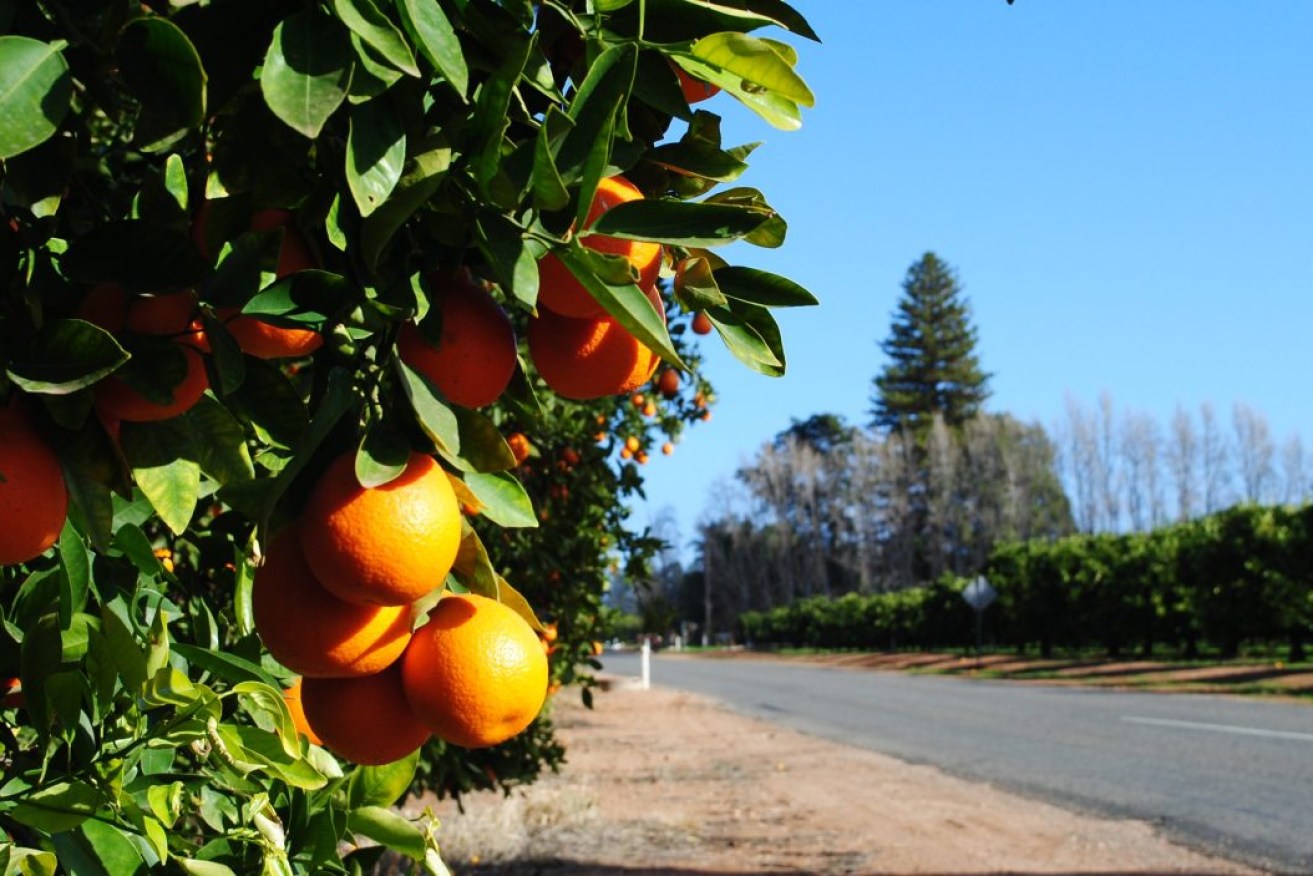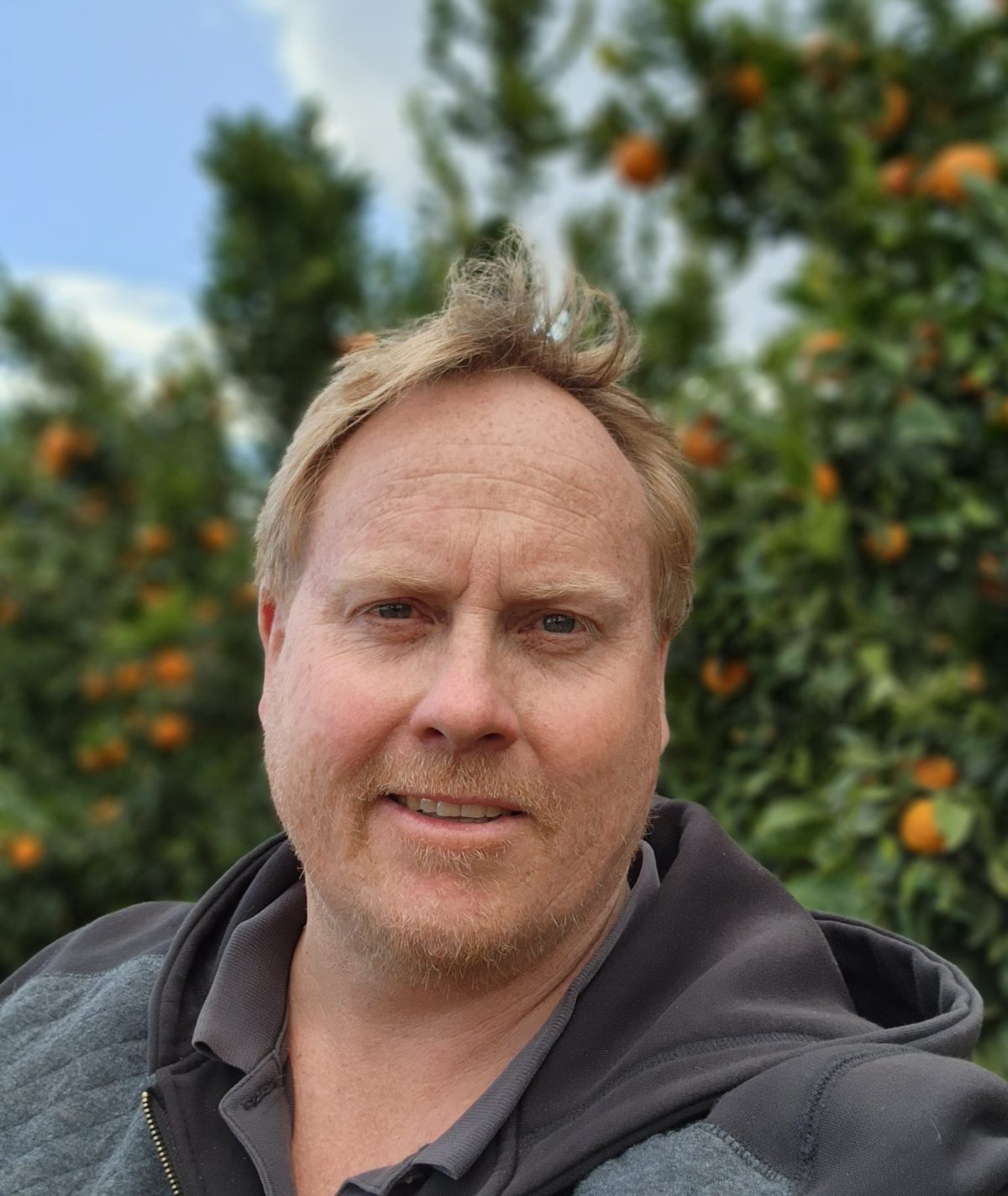Battle lines drawn in Riverland fruit fly recovery fight
Growers and government experts are launching an all-out battle to eradicate fruit fly in the Riverland after seeing the destructive pests batter the region’s precious citrus and stone fruit industry over the past 18 months.


From the start of August, 20 million sterile fruit flies a week are being released across 14 outbreak zones in this powerhouse of the state’s $1.4 billion horticulture industry.
While Riverland Fruit Fly Committee chair Jason Size said there was a tough road ahead, additional rule changes allowing growers to be more proactive in setting baits along with ‘attract and kill’ devices on properties were promising.
“We’re in a really vulnerable situation: some growers have sold orchards as it’s got too hard, others have extra debt, it’s been very difficult for growers… We’re talking about millions of dollars in market access,” said Size, who is also a Bookpurnong stone fruit grower.
“Growers from all the industries attended a field day recently and we are now trialling this, we’re doing things differently to try and get on top of it.
“We are at a crucial time in the history of our pest-free area for everyone to take action to help control and eradicate this pest. Everyone needs to pitch in and support all our efforts.”
It has been a tough gig for growers in the midst of citrus production season as they face daunting extra costs to treat fruit for the Queensland Fruit Fly and miss out on the premium export markets the Riverland has built over decades based on its pest-free area status.
While other important Riverland crops like almonds are not affected, more vulnerable crops include citrus, avocadoes and stone fruit. The Riverland, Swan Hill and Goulburn Valley are responsible for more than 50 per cent of the nation’s stone fruit production.
The Riverland growing region is also the third largest citrus growing region in Australia, with 5518 hectares of planted citrus contributing 20 per cent of Australia’s commercial citrus industry.

Riverland citrus grower and Citrus Australia board member Ryan Arnold.
Harvest is well underway for oranges and mandarins, with Pyap Produce grower Ryan Arnold saying citrus prices had dropped as packing sheds that sell fruit into markets faced higher costs with fumigation along with facing less receptive markets.
Fruit must be cold sterilised or chemically treated and this was also creating some bottlenecks, meaning citrus was getting to markets later.
Export markets most affected were those with more lucrative opportunities in Japan and China where Riverland citrus growers have spent years building strong relationships to sell highest quality fruit for a premium under a pest-free brand.
Arnold, who is also a board member for Citrus Australia, said the Riverland was still at a point where growers suffering from reduced returns could turn around the fruit fly problem.
He welcomed the more intensive regime overseen by the Department of Primary Industries and Regions to eradicate fruit fly saying “it’s warranted to throw the kitchen sink at the problem with the current region-wide spring eradication plan in play”.
“We have to be hopeful. I think there’s definitely an opportunity and if there is ever going to be one, this is the way to do it,” Arnold said.
Metropolitan Adelaide battled 12 Queensland and Mediterranean fruit fly outbreaks over two years.
In February this year, the State Government announced its intense $70 million program of tree baiting, fruit collection and the release of sterile flies across Adelaide had successfully eradicated the pests in the urban area.
The battle is now on in earnest in the Riverland.
Primary Industries Minister Claire Scriven said $13 million had been allocated to fighting fruit fly to return the Riverland Pest Free Area status.
“The Spring plan has the ability to achieve a greater reach and a greater intensity than ever before in its eradication efforts, and we are already seeing good grower engagement in the new program,” she said.
If the Riverland beats the fruit flies, there would be ongoing pressure to keep strict restrictions in place, with the nearby Sunraysia district in Victoria having failed to eradicate a worsening situation with fruit fly in orchards near Mildura.
“Maybe this will inspire Victoria to pick up its response too,” Arnold said.




